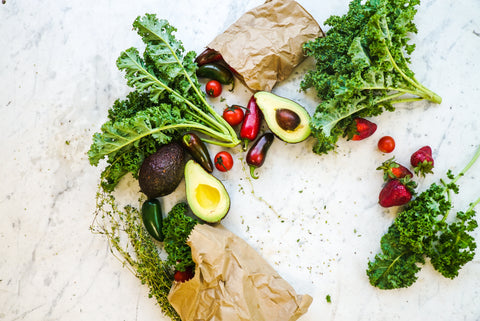
Optimizing Your Digestion: Why It's Important and How to Do It
Optimizing Your Digestion: Why It's Important and How to Do It.
The digestive system is a crucial component of the body, responsible for breaking down food and extracting the necessary nutrients to sustain life. A well-functioning digestive system is essential to maintaining overall health and well-being, while poor digestion can lead to a wide range of health problems. In this article, we will explore the benefits of optimizing your digestion and how to help digestion after eating.
Why Optimize Your Digestion?
Optimizing your digestion offers a range of benefits, including improved nutrient absorption, alleviation of digestive issues, clear skin and enhanced immune function. When food is broken down into small molecules, it can be more easily absorbed into the bloodstream and transported to various parts of the body. This is critical for obtaining essential vitamins, minerals, and other nutrients that are necessary for optimal health. In addition, poor digestion can lead to malabsorption, which means that your body is not able to absorb nutrients effectively. This can result in deficiencies in key nutrients, which can lead to a wide range of health problems. For example, iron deficiency can cause fatigue and anemia, while vitamin D deficiency can lead to weak bones and an increased risk of chronic diseases. Poor digestion can also cause a range of digestive issues, such as bloating, gas, and constipation. These issues can be caused by a variety of factors, including poor diet, stress, and medication use. However, making simple changes to your diet and lifestyle can often provide relief. Juna Detox Drops support healthy digestion, debloat and liver detoxification so you can feel your best.
Tips for Optimizing Your Digestion

To optimize your digestion and promote nutrient absorption, try the following tips:
- Chew your food thoroughly: Chewing your food well is the first step in the digestive process. It breaks down food into smaller particles, making it easier to digest and absorb. When you swallow large pieces of food, your digestive system has to work harder to break it down, which can lead to indigestion and other digestive problems ultimately helping digestion after eating.
- Eat a varied and balanced diet: A healthy diet that includes a variety of foods can help ensure that you are getting all the nutrients you need. Foods that are rich in vitamins and minerals, such as fruits, vegetables, and whole grains, can promote optimal digestion and nutrient absorption.
- Drink plenty of water: Water is essential for proper digestion and nutrient absorption. It helps to soften food and move it through the digestive tract. Aim to drink at least eight glasses of water a day, and more if you are physically active or live in a hot climate.
- Avoid processed and refined foods: Processed and refined foods are often low in nutrients and can be difficult to digest. They can also cause inflammation in the body, which can impair digestion and lead to a host of health problems. Instead, focus on whole, unprocessed foods that are rich in nutrients and fiber.
- Take a digestive enzyme supplement like Juna's Detox Enzymes with an array of beneficial, full spectrum enzymes, probiotics and plants to help with nutrient absorption, metabolism and ease digestive discomforts such as bloat.

To alleviate digestive issues, try the following tips:
- Increase fiber intake: Fiber helps to regulate bowel movements and prevent constipation. It also promotes the growth of healthy gut bacteria, which can improve digestion. Foods that are rich in fiber include fruits, vegetables, whole grains, nuts, and seeds.
- Eat probiotic-rich foods: Probiotics are beneficial bacteria that live in the gut and help to promote digestion. Foods that are rich in probiotics include yogurt, kefir, sauerkraut, and kimchi.
- Avoid trigger foods: Some foods can exacerbate digestive issues. Common trigger foods include dairy, gluten, and spicy foods. If you notice that certain foods cause digestive problems, try eliminating them from your diet for a few weeks and see if your symptoms improve.
- Manage stress: Stress can have a significant impact on digestion. When you are stressed, your body.

In conclusion, optimizing your digestion can have a significant impact on your overall health and well-being. By following these tips, you can support your digestive system and reap the benefits of optimal digestion. Start small and make gradual changes to your diet and lifestyle, and you will be on your way to better digestion and improved health.
Sources:
- https://www.healthline.com/nutrition/ways-to-improve-digestion
- https://www.medicalnewstoday.com/articles/323935
- https://www.webmd.com/digestive-disorders/features/digestive-health-boosting-tips
Related reading: